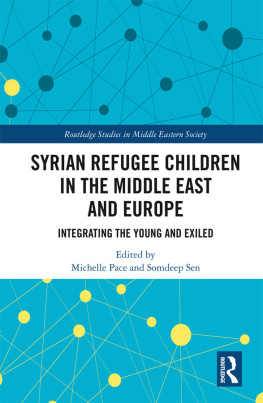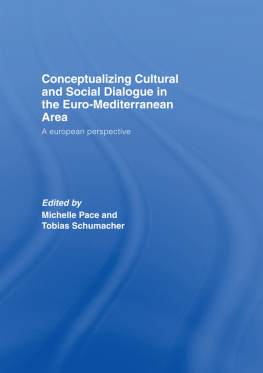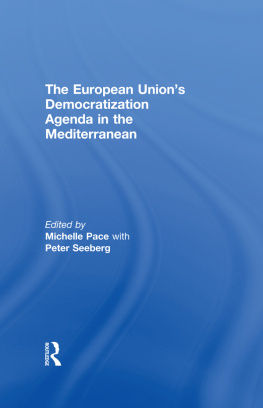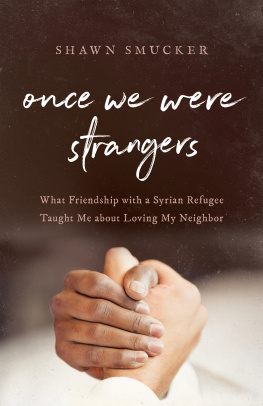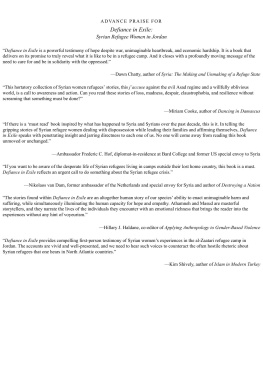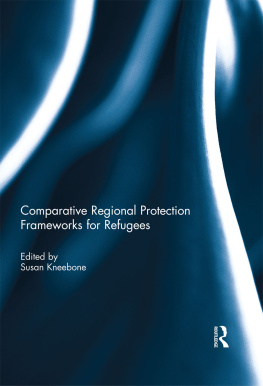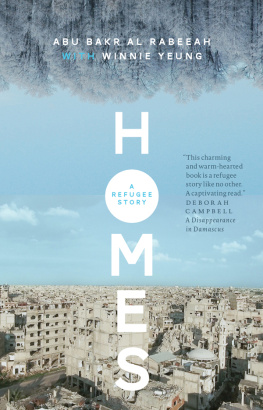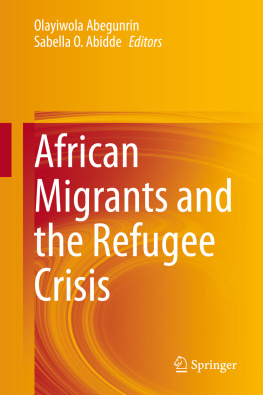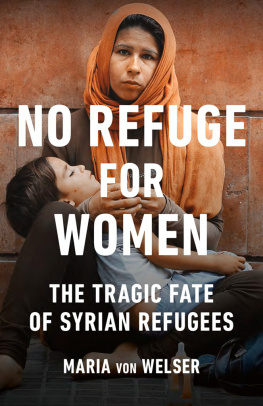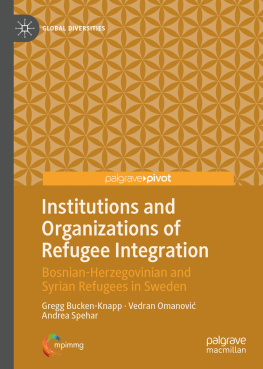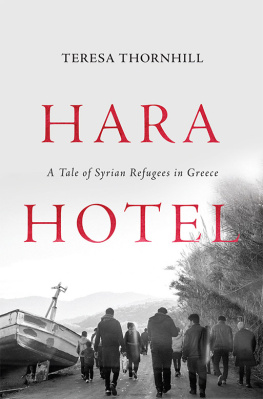A timely contribution to the critical academic debate on the refugee emergency of the last few years, this new book by Michelle Pace and Somdeep Sen sheds light to the plight and challenges of Syrian refugee children. While offering new data and insights on specific integration issues such as education and rights, the book is innovative also in its approach to identity, agency and resilience of refugee children and their families. A must read for researchers, policy makers and media professionals working in the field of asylum and migration in Europe today.
Professor Anna Triandafyllidou, Global Governance Programme (GGP) of the Robert Schuman Centre for Advanced Studies (RSCAS), European University Institute
Syrian Refugee Children in the Middle East and Europe
Since the start of the conflict in Syria in 2011, Syrian refugee children have withstood violence, uncertainty, fear, trauma and loss. This book follows their journeys by bringing together scholars and practitioners to reflect on how to make their situation better and to get this knowledge to as many front liners across European and neighbouring countries in the Middle East as possible.
The book is premised on the underlying conception of refugee children as not merely a vulnerable contingent of the displaced Syrian population, but one that possesses a certain agency for change and progress. In this vein, the various contributions aim to not just de-securitize the conversation on migration that frequently centres on the presumed insecurity that refugees personify. They also de-securitize the figure and image of the refugee. Through the stories of the youngest and most vulnerable, they demonstrate that refugee children are not mere opaque figures on whom we project our insecurities. Instead, they embody potentials and opportunities for progress that we need to nurture, as young refugees find themselves compelled to both negotiate the practical realities of a life in exile, and situate themselves in changing and unfamiliar socio-cultural contexts. Drawing on extensive field research, this edited volume points in the direction of a new rights based framework which will safeguard the future of these children and their well-being.
Offering a comparative lens between approaches to tackling refugees in the Middle East and Europe, this book will appeal to students and scholars of refugees and migration studies and human rights, as well as anyone with an interest in the Middle East or Europe.
Michelle Pace is Professor with special responsibilities in European Union and Middle East relations at the Department of Social Sciences and Business at Roskilde University, Denmark. Her research interests include the life worlds of minor refugees, emotions in International Relations and identity politics.
Somdeep Sen is a postdoctoral researcher at the Department of Social Sciences and Business at Roskilde University, Denmark. His research interests include postcolonialism, state building, violence, spatial politics and refugees integration.
Routledge Studies in Middle Eastern Society
This series seeks to examine the various developments and changes in contemporary Middle East society. From a variety of disciplinary approaches it includes books on issues such as globalization, the impact of economic, religious and political change on peoples lives, the family and gender relations in the region.
The War in Darfur
Reclaiming Sudanese History
Anders Hastrup
Israeli Identity
Between Orient and Occident
Edited by David Tal
A Political Economy of Arab Education
Policies and Comparative Perspectives
Mohamed Alaa Abdel-Moneim
Syrian Refugee Children in the Middle East and Europe
Integrating the Young and Exiled
Edited by Michelle Pace and Somdeep Sen
Syrian Refugee Children in the Middle East and Europe
Integrating the Young and Exiled
Edited by Michelle Pace and Somdeep Sen
First published 2018
by Routledge
2 Park Square, Milton Park, Abingdon, Oxon OX14 4RN
and by Routledge
711 Third Avenue, New York, NY 10017
Routledge is an imprint of the Taylor & Francis Group, an informa business
2018 selection and editorial matter, Michelle Pace and Somdeep Sen; individual chapters, the contributors
The right of Michelle Pace and Somdeep Sen to be identified as the authors of the editorial material, and of the authors for their individual chapters, has been asserted in accordance with sections 77 and 78 of the Copyright, Designs and Patents Act 1988.
All rights reserved. No part of this book may be reprinted or reproduced or utilized in any form or by any electronic, mechanical, or other means, now known or hereafter invented, including photocopying and recording, or in any information storage or retrieval system, without permission in writing from the publishers.
Trademark notice: Product or corporate names may be trademarks or registered trademarks, and are used only for identification and explanation without intent to infringe.
British Library Cataloguing-in-Publication Data
A catalogue record for this book is available from the British Library
Library of Congress Cataloging-in-Publication Data
A catalog record for this book has been requested
ISBN: 978-0-8153-4734-7 (hbk)
ISBN: 978-1-351-16932-5 (ebk)
Typeset in Times New Roman
by Apex CoVantage, LLC
Contents
SOMDEEP SEN
SOMDEEP SEN AND MICHELLE PACE
MICHELLE PACE
DOGUS SIMSEK
MICHEL MARAGEL AND SANDRA MANACHI
JOSEPHA IVANKA WESSELS
BASSEL AKAR AND ERIK VAN OMMERING
LISA MAREN STELLER
LANA KHATTAB, CHIARA BUTTI AND ILINA SLAVOVA
SOMDEEP SEN
JENNIFER SKULTE-OUAISS
In late summer 2016, my wife and I visited a relative who lives in an affluent suburb of a small town in Denmark. Our host was quite proud of her sea-front property. It seemed though that, to her, the house had but one blemish: that it was very close to a refugee centre. Naturally, the conversations during the rest of our visit frequently travailed the topic of the so-called refugee crisis. At the time, Denmark was still in the eye of international outrage in response to its draconian immigration laws aimed at stemming the flow of refugees into the country. In a press release published on 21st January, 2016, Gauri van Gulik, Amnesty Internationals Deputy Director for Europe, had said, The international community must call Denmark out as it enters a race to the bottom. Denmark was one of the first champions of the Refugee Convention, but its government is now brazenly creating blocks to the well-being and safety of refugee families (2016). Nevertheless, our hosts views on the subject, she insisted, were not a matter of politics but experiential, based on her observations while living in close quarters to refugees. She was quite unyielding in her labelling of who they were and what they did to her community: They dont know how to use trash like us, Their culture is too different, They walk in large groups. It looks strange. They make the women here feel unsafe.
To be sure, our host had never had any significant interactions with refugees. In fact, during an evening walk together in the vicinity of a refugee centre, she consciously avoided crossing paths with its residents. Nonetheless, she was resolute in her views. This of course is characteristic of much of the rhetoric surrounding the crisis. Refugees have emerged as an opaque category denoted, in the words of our host, as simply they that is synonymous with all that we fear as detrimental to our ways. It is this fear that drives Denmarks race to the bottom. It is the same sense of trepidation that led Polands refusal to accept any refugees following the terror attacks in France and Belgium. And, presumably, it was this fear of the unfamiliar but assuredly perilous that inspired Slavoj Zizek to write the following:

